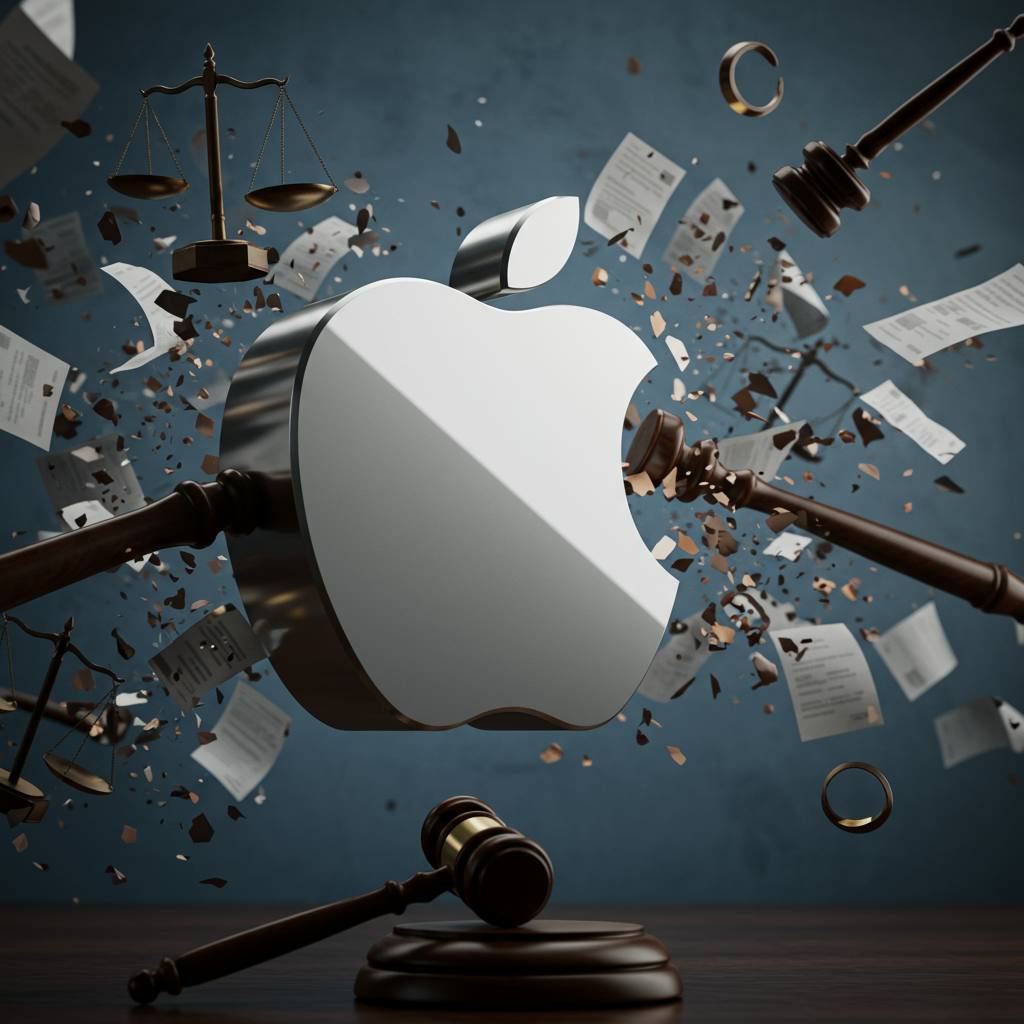Apple Fights Back: Calls Zero App Store Commission “Punitive” and “Unfair”
Apple is currently embroiled in a significant legal battle, pushing back against a recent court order that mandates sweeping changes to its App Store business model. At the heart of the dispute is a requirement forcing Apple to allow app developers to direct users to external purchasing options without taking any commission on sales initiated via these links. Apple is appealing this ruling, arguing it is both “unduly punitive” and “fundamentally unfair.”
This latest legal skirmish stems directly from the long-running Epic Games v. Apple lawsuit, where Apple largely prevailed but lost on one crucial point: anti-steering rules that prevented developers from telling users about alternative places to buy digital content outside the App Store.
The Mandate Apple Calls Unfair
The current mandate from Judge Yvonne Gonzalez Rodgers requires Apple to dismantle all barriers to external app purchases and linking, specifically prohibiting Apple from collecting any commission (effectively setting the App Store royalty to zero) on sales made this way.
This order came after the judge found Apple in civil contempt for willfully violating the original 2021 anti-steering injunction, which wasn’t enforced until 2024. Apple’s initial implementation of the rule was deemed functionally useless by critics, leading to complaints from Epic and the subsequent finding of non-compliance. Discovery reportedly revealed internal Apple discussions that suggested an intentional strategy to circumvent the spirit of the court’s order.
Apple had requested a stay on the mandate, which was denied, prompting the current appeal to the 9th Circuit Court.
Why Apple is Appealing: Legal Arguments
In its filing with the 9th Circuit Court, Apple doesn’t hold back, urging the court to discard the mandate. The tech giant lays out several key arguments:
Unduly Punitive: Apple contends the mandate acts as a punishment, forcing a zero royalty rate for a large category of transactions, which it argues is an improper use of civil contempt proceedings.
Beyond Injunction Scope: Apple claims the latest order goes beyond the scope of the original anti-steering injunction from the Epic case.
Inconsistent & Unfair: The company finds it illogical that a finding suggesting its previous 27% commission was too high should result in dropping the rate to zero.
Violation of Law: Apple asserts the mandate violates California’s Unfair Competition Law (UCL) and the U.S. Constitution.
While acknowledging it was found non-compliant with the initial injunction and expressing regret, Apple maintains the prescribed solution – the zero-commission requirement – is a disproportionate penalty.
The Stakes: Why App Store Commissions Matter to Apple
Understanding Apple’s fierce defense of its commission structure requires looking at its broader business strategy. While known for hardware like the iPhone, Apple has successfully transformed into a services powerhouse. The App Store is a core component of this lucrative segment.
Along with services like AppleCare, Apple One bundles, iCloud, Apple TV+, Apple Music, and others, the App Store generates significant revenue and strengthens the overall ecosystem by enabling developers to reach Apple’s vast user base. Forcing a zero commission on external purchases potentially erodes a key revenue stream and alters the economics of this critical part of Apple’s services business. This strategic importance underscores why Apple is mounting such a strong legal battle over the mandate.
What Happens Next?
This legal appeal process is expected to be lengthy, potentially taking months or even years as Apple, Epic, and the courts go back and forth.
In the meantime, despite the uncertainty of the final outcome, developers are reportedly already beginning to take advantage of the ability to steer users to external purchasing options without paying Apple a cut, as opened up by the current mandate.
Apple’s requests to the 9th Circuit Court include not only throwing out the new injunction and reversing the civil contempt finding but also reassigning the case to a new judge if it returns to the district court. The path forward remains unclear, but the high-stakes fight over App Store rules and revenue is far from over.



